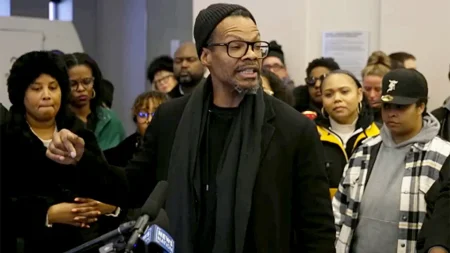Ukraine’s Tactical Advances Shift War Narrative as Strategic Counteroffensive Bears Fruit
Ukrainian Forces Challenge Russia’s “Unstoppable” War Narrative with Recent Territorial Gains
In the snow-dusted plains of eastern Ukraine, a strategic shift is unfolding that could fundamentally alter the trajectory of Europe’s largest land war since World War II. Ukrainian forces have secured notable territorial gains in recent weeks, delivering a significant psychological blow to Moscow’s carefully cultivated narrative that Russian advances are inexorable and that Kyiv must eventually accept a peace settlement that cedes sovereign territory. These developments come at a critical juncture as winter sets in across the battlefield and as Western allies debate future aid packages that could determine Ukraine’s capacity to continue its resistance against Russian aggression.
Military analysts observing the conflict point to several key victories in the Donetsk and Zaporizhzhia regions, where Ukrainian defenders have reclaimed villages and strategic high ground previously under Russian control. “What we’re witnessing is far more significant than the mere recapture of a few square kilometers of territory,” explains Dr. Marta Kowalski, Senior Fellow at the European Defense Institute. “These advances directly challenge the Kremlin’s propaganda that portrays Russian forces as militarily superior and Ukrainian resistance as futile.” The timing of these gains is particularly consequential, coming after months of grinding Russian offensive operations that had made incremental progress along the eastern front, fueling concerns about Ukraine’s ability to sustain its defensive posture without accelerated Western military support.
The psychological impact of these Ukrainian successes extends beyond the battlefield into diplomatic and political realms. Russia has consistently pushed a narrative that Ukraine should accept territorial concessions as the price for peace, arguing that military momentum favors Moscow and that continued resistance only prolongs Ukrainian suffering. This messaging, amplified through state-controlled media and diplomatic channels, has been designed to weaken international resolve and pressure Kyiv into negotiations on unfavorable terms. “Every recaptured village and every successful defensive operation undermines Russia’s fundamental strategic narrative,” notes Ambassador Thomas Greenfield, former special envoy to Eastern Europe. “These advances demonstrate that Ukrainian forces remain capable of not just holding ground but retaking it, which fundamentally changes the calculus for any potential peace negotiations.”
Tactical Victories Yield Strategic Dividends as International Support Remains Crucial
The recent Ukrainian successes have relied on a combination of improved tactical coordination, effective deployment of Western-supplied precision weapons, and exploitation of vulnerabilities in Russian command structures. According to military observers embedded with Ukrainian units, forces have employed sophisticated small-unit tactics, leveraging superior knowledge of local terrain and improved battlefield intelligence to outmaneuver larger Russian formations. Colonel Vasyl Petrenko, a Ukrainian military spokesperson, emphasized that these operations were carefully planned to maximize impact while preserving precious manpower and equipment. “We are fighting smarter, not just harder,” Petrenko stated during a press briefing in Kyiv. “Our commanders have learned to identify opportunities where targeted pressure can yield disproportionate results, forcing Russian units to abandon positions they spent months and significant resources to capture.”
These battlefield developments come amid intense discussions among Ukraine’s Western partners regarding the sustainability of military aid. In Washington, Brussels, and other allied capitals, policymakers are weighing additional support packages against competing domestic priorities and concerns about escalation. Ukraine’s demonstrated ability to effectively utilize Western weapons systems and achieve tangible results strengthens the case for continued assistance. “Success breeds success in international relations,” explains Dr. Rebecca Lancaster, Professor of International Security at Georgetown University. “When donor nations see their military aid translating into battlefield progress, it reinforces the strategic logic of their investment in Ukraine’s defense.” This dynamic creates a virtuous cycle where Ukrainian military achievements help secure the resources needed for future operations, potentially altering the strategic balance in ways that seemed improbable earlier in the conflict.
The humanitarian dimensions of these territorial recoveries should not be overlooked. In reclaimed villages, Ukrainian authorities have begun restoring essential services and documenting evidence of human rights abuses committed during occupation. Civilians who remained under Russian control have described systematic intimidation, resource deprivation, and forced cultural assimilation efforts. “When Ukrainian forces returned to our village, it was like breathing again after being underwater,” recounted Olena Kovalenko, 67, who lived through nine months of Russian occupation before her hometown was liberated in the recent counteroffensive. “They tried to make us forget we were Ukrainian, but now we can speak our language and live without fear again.” These personal testimonies provide powerful counterpoints to Russian claims of protecting civilian populations and underscore the human stakes of territorial control beyond strategic military considerations.
Looking Forward: Implications for Peace Negotiations and the Changing Dynamics of the Conflict
As winter deepens across the battlefield, both sides face significant logistical and operational challenges that will test their respective military capabilities. Historically, the frozen ground of winter has facilitated mechanized movement in the region, potentially opening opportunities for further offensive operations by either side. Ukrainian military planners appear to be leveraging this traditional winter advantage while simultaneously preparing defensive positions against anticipated Russian pressure points. “We’re seeing a chess match unfold where both sides are thinking several moves ahead,” observes General (Ret.) James Marshfield, former NATO commander. “Ukrainian forces have demonstrated impressive adaptability, transitioning between defensive and offensive postures with increasing fluidity while maximizing the impact of limited resources.”
The implications of Ukraine’s recent battlefield successes extend to potential peace negotiations, which various international mediators have attempted to facilitate since the conflict’s earliest stages. Russia’s previous negotiating position has consistently demanded Ukrainian territorial concessions and neutrality guarantees as preconditions for any settlement. Ukraine’s demonstrated capability to recapture territory fundamentally weakens Russia’s negotiating leverage by challenging the assumption that current front lines represent a realistic basis for eventual borders. “Every kilometer Ukraine reclaims represents not just physical terrain but negotiating power,” explains Maria Zakharova, Director of the Institute for Peace and Security Studies. “If Ukraine can continue to demonstrate that the military situation is not frozen but fluid, it substantially complicates Russia’s ability to demand territorial concessions as the price for peace.”
As this conflict approaches its third year, the international community watches closely to see whether Ukraine’s recent tactical successes can translate into strategic momentum capable of fundamentally altering the war’s trajectory. While significant challenges remain, including concerns about resource sustainability and civilian protection during winter months, the narrative that Russian advances are unstoppable has been demonstrably challenged. For Ukrainian citizens and their international supporters, these battlefield developments provide tangible evidence that resistance remains viable despite the enormous costs already endured. As President Volodymyr Zelensky told his nation in a recent address: “Ukraine does not merely survive—Ukraine advances, even when our adversaries claim it impossible.” In the complex calculations of war and peace, perception often shapes reality as much as the physical control of territory. By challenging Russia’s narrative of inevitable victory, Ukraine’s recent gains may ultimately prove as important on the diplomatic front as they have been on the battlefield.







